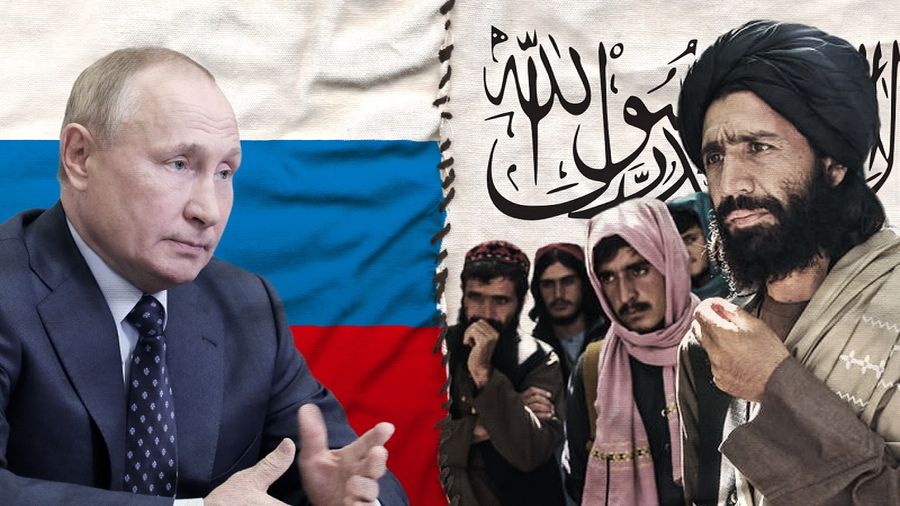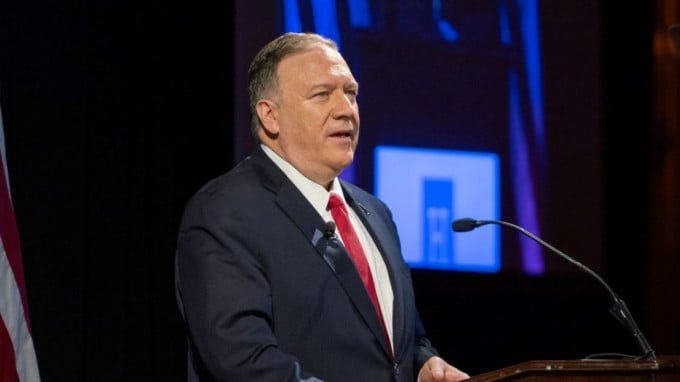The Taliban Envisions Russia Playing a Big Role in the Group’s Geo-Economic Balancing Act
It won’t openly say as much, but the Taliban is arguably working to preemptively avert its potentially disproportionate dependence on China and Pakistan out of concern that such a relationship could erode its sovereignty.
Afghan Minister of Industry and Trade Nooruddin Azizi shared some insight into his country’s geo-economic balancing act in an exclusive interview with Sputnik that was published on Friday at the end of his week-long trip to Moscow. Although Russian Ambassador to Afghanistan Dmitry Zhirnov recently reaffirmed in a detailed interview with RIA Novosti on the one-year anniversary of the Taliban capturing Kabul that Moscow still doesn’t formally recognize that movement as the country’s legitimate rulers, he nevertheless confirmed that it continues to pragmatically engage with it in the interests of helping the Afghan people and countering shared terrorist threats. This explains why Azizi was welcomed in the Russian capital despite the Kremlin not officially acknowledging his writ.
The Taliban’s industry and trade representative told Sputnik that he’s exploring the possibility of a barter system with Russia wherein minerals, raisins, and medicinal herbs would be exchanged for petroleum products and goods. He also invited Russian companies to return to Afghanistan to invest in its oil and gas, power generation, cement, lithium, and other mineral sectors. Altogether, Azizi’s suggestions hint at the big role that the Taliban envisions Russia playing in the group’s geo-economic balancing act between regional stakeholders like China and Pakistan. It won’t openly say as much, but the Taliban is arguably working to preemptively avert its potentially disproportionate dependence on those two neighboring countries out of concern that such a relationship could erode its sovereignty.
That’s not in any way to imply that they intend to turn that movement into their “junior partners”, but just to draw attention to the unstated strategic dilemma that appears to be influencing the Taliban’s calculations in this respect. After all, it could easily allow China and/or Pakistan to swiftly develop those industries that are crucial to Afghanistan’s sustainable economic recovery, especially the mineral one that’s estimated to be worth at least $1 trillion and could thus be reinvested into improving its people’s living standards. Instead, the Taliban is shrewdly betting on Russia as its preferred partner in this respect because it regards the Kremlin as a neutral third-party balancing force between China and Pakistan.
Those two neighboring countries are strategic partners who don’t compete with one another in any way, which represents the ideal model of bilateral relations that all parties aspire to one day achieve. That said, from the Taliban’s perspective, the Chinese-Pakistani Strategic Partnership might prospectively be leveraged to coordinate their Afghan policy in a manner that the group speculates could result in it becoming disproportionately dependent on this regional multipolar duopoly. Their resultant de facto “junior partnership” vis a vis those two might then end up seeing them “more confidently encourage” the group to comply with their requests for far-reaching domestic reforms.
Russia shares all other responsible stakeholders’ desire for the Taliban to form a truly ethno-politically inclusive government as well as safeguard the rights that women had under the former US-backed authorities, but this clearly isn’t something that the group is eager to do anytime soon, if at all. The Taliban therefore seems to have calculated that the best chance that it has to indefinitely delay these reforms that those countries consider to be a prerequisite to formally recognizing their leadership over Afghanistan while still receiving foreign support for rebuilding the economy is to rely on Russia as a valve from coordinated Chinese-Pakistani “pressure” to this end.
So as not to be misunderstood or have the above insight maliciously misportrayed by those engaged in information warfare, Russia sincerely hopes that the Taliban will commence the requested reforms and wholeheartedly supports all related efforts by responsible stakeholders such as China and Pakistan to advance this shared goal. Nevertheless, should it become that group’s partner of choice for developing Afghanistan’s strategic industries, then it might no longer prioritize this but instead hope to gradually influence the Taliban in a positive way over the long term. The same holds true for India, which the Taliban is also enthusiastically embracing for the same geo-economic balancing reasons.
The Russian-Indian axis might even prioritize joint investments in key Afghan industries per their new Non-Aligned Movement (“Neo-NAM”) model of helping third countries enhance their strategic autonomy vis-à-vis others, which in this context would refer to the Chinese-Pakistani axis. Another clarification is now required in order to prevent any misunderstanding or misportrayal of this observation since it would be inaccurate if agenda-driven forces predictably claimed that the Russian-Indian axis is competing with the Chinese-Pakistani one since they’re actually complementary pairs of states that are each working to advance the global systemic transition to multipolarity in their own way.
They each plan to contribute to Afghanistan’s sustainable socio-economic recovery, but the Taliban hopes to direct their efforts in a way that maximizes its strategic autonomy, ergo why it appears set to rely on the Russian-Indian axis as a geo-economic balancing force to preemptively avert potentially disproportionate dependence on the Chinese-Pakistani one. For whatever observers might think about this policy, it’s the Taliban’s sovereign right to experiment with since that group is Afghanistan’s de facto rulers and therefore capable of advancing its aforesaid vision. It’ll of course remain to be seen how successful it is, but there’s little doubt that this is precisely what it’s aiming to achieve.







